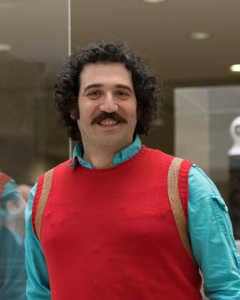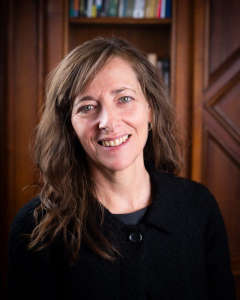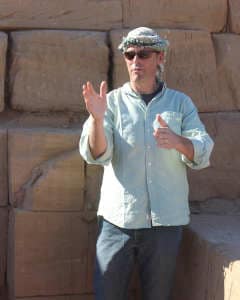
2021 VIRTUAL PLENARY PANEL DISCUSSION
Living with Legacies: ASOR Archaeo-activism and a Future for 21st Century Archaeology
Wednesday, December 8, 2021 (Free and open to the public)
2:00pm – 3:00pm EST | Request Zoom Link by e-mailing plenary@asor.org
Arabic translation will be provided for the Virtual Plenary Panel Discussion
Before attending this Virtual Panel Discussion, you can view Morag Kersel’s Plenary Address (given live in Chicago on November 17) online here. The Virtual Plenary Panel Discussion will be a continuation of the Plenary message that in-person attendees heard, with added perspectives from different voices in the field.
Moderator
Morag M. Kersel is associate professor of anthropology and director of the Museum Studies Minor at DePaul University. Prof. Kersel is an archaeologist who works in the Eastern Mediterranean in the Neolithic, Chalcolithic and Early Bronze Age periods. She earned a PhD in Archaeology from the University of Cambridge. She also holds a Master of Historic Preservation (with Distinction) from the University of Georgia, a Master of Arts in Near Eastern Studies from the University of Toronto and a Bachelor of Arts (Honors) in Classical Studies from Queen’s University, Kingston, Canada. In addition to participating in archaeological excavations and surveys in Egypt, Greece, Israel, Jordan, Palestine, and Turkey, Morag is interested in the relationship between cultural heritage law, archaeological sites and objects, and local interaction. She has published a number of articles and is the co-author (with Christina Luke) U.S. Cultural Diplomacy and Archaeology: Soft Power, Hard Heritage (2013) and co-editor (with M.T. Rutz ) of Archaeologies of Text: Archaeology, Technology, and Ethics (2014).
Panelists
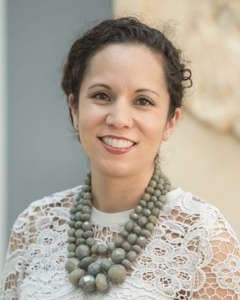
Geoff Emberling is an associate research scientist at the Kelsey Museum and currently directs archaeological research on ancient Kush at Jebel Barkal in northern Sudan. He received a BA in anthropology from Harvard and a PhD in anthropology and Near Eastern studies from the University of Michigan with a dissertation on ethnicity in early Mesopotamia. He has previously held positions as lecturer at the University of Copenhagen, assistant curator in the Department of Ancient Near Eastern Art at the Metropolitan Museum of Art, and as museum director and chief curator at the Oriental Institute of the University of Chicago. His research interests include comparative perspectives on ancient cities, states, empires, and ethnicity with a particular focus on ancient cultures across the Middle East and North Africa. He has also written on the politics of archaeological practice and museum display. His archaeological field experience spans much of the Middle East and North Africa. From 1998 to 2004 he directed excavations at Tell Brak, a site in northeastern Syria that contains the remains of one of the earliest and largest Mesopotamian cities. More recently, he directed salvage excavations in the 4th Cataract of the Nile in northern Sudan in 2007 and 2008, and at El-Kurru in northern Sudan from 2013 to 2018. He is increasingly committed to developing fully collaborative archaeological field projects, with equal representation of Sudanese and foreign staff, and extensive engagement with local communities. In addition to archaeological research, he has also curated and directed installation of numerous museum exhibitions, including the reinstallation of the Ancient Middle East gallery at the Detroit Institute of Arts and, most recently, the exhibition Graffiti as Devotion along the Nile at the Kelsey (2019–2020, co-curated with Suzanne Davis).
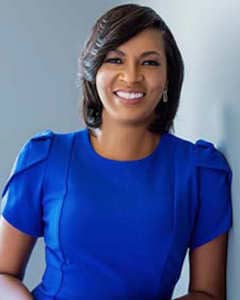
Photo By: R. Dione Foto (www.rdionefoto.com)
Alexandra Jones, Founder and Chief Executive Officer of Archaeology in the Community, is an education leader focused on community outreach and service. Dr. Jones has been an educator for more than 16 years. She obtained dual Bachelors of Arts degrees from Howard University in History and Anthropology in 2001. She obtained a Master’s degree in History from Howard University in 2003 and then attending University of California, Berkeley to obtain a Ph.D. in Historical Archaeology in 2010. Dr. Jones worked for PBS’s television show Time Team America as the Archaeology Field School Director, where she directed field schools for junior high and high school students at each of the sites for the 2013 season. She is currently Professor of Practice of Archaeology at Goucher College. Dr. Jones serves as the President-Elect for the Society of Black Archaeologists and she serves on the District of Columbia’s Historic Preservation Review Board, the Board of Directors of the St. Croix Archaeological Society and is an Academic Trustee for the Archaeological Institute of America.
